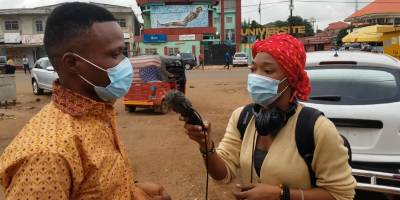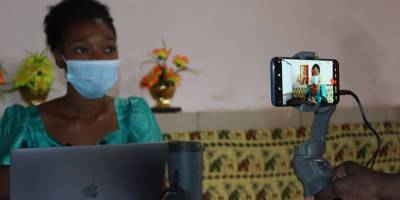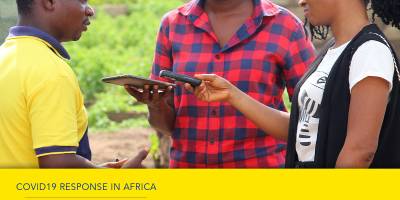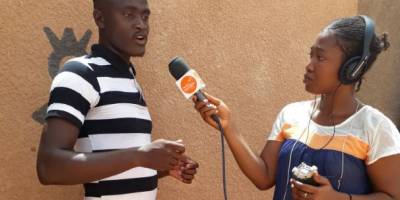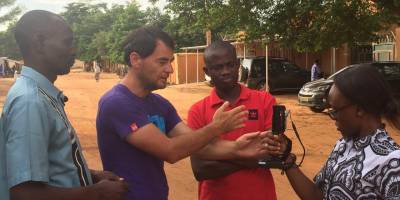Fondation Hirondelle created Studio Hirondelle Guinée (SHG) in 2014 in Guinea Conakry. For more than two years, this radio training and production studio trained a new generation of Guinean journalists and media professionals who produced daily information and factual and useful programs, broadcast by 34 rural radio stations across the country. These programs played an important role in the Ebola epidemic in 2014/2015 to counter rumors and convey vital information to the most isolated populations. The support of Fondation Hirondelle ended in 2017 due to lack of funding. SHG equipment was transferred to an association created by its staff and registered under Guinean law.
Present in Guinea Conakry since 2012, Fondation Hirondelle created the Studio Hirondelle Guinée (SHG) in January 2014 with the objective of producing and broadcasting professional, neutral, and impartial information and training professionals in the Guinean media. Guinea faces endemic governance challenges, social and political instability, and problems of coexistence between its communities.
SHG's key partners were the Guinea Rural Radio network, whose radio stations broadcast the programs produced by the studio, as well as the Higher Institute of Information and Communication (ISIC). The professionals and students from these two structures received training at the SHG. More than two hundred were trained from 2014 to 2016.
In February 2014, an epidemic of Ebola began in Guinea’s Forest region. The late reaction of local authorities and the international community threatened a worst-case scenario. Clumsy communication, initially driven by the government, only created mistrust, denial, and fear. Humanitarian agencies such as Médecins Sans Frontières (MSF) were often confronted with hostility from local populations who denied the existence of the disease, or thought that the healthcare actors caused it. Studio Hirondelle Guinea responded by producing radio programs to help people understand the disease, explaining its causes and prevention methods. But the challenge was to find the right tone and the right formats to enable listeners to regain trust in the information and to support the work of healthcare personnel. The Studio produced dozens of hours of programs in 10 languages. The quality of these productions was welcomed by the authorities, the national and international actors in charge of the fight against the epidemic. These productions also attracted the attention of UNICEF, which chose SHG as a media partner in the fight against Ebola.
SHG also informed and sensitized people about all societal problems, both nationally and locally and recurrent political and social tensions in the country. Migration was also a major issue. Migrants of Guinean origin were among the most numerous to arrive on the Italian coast. More than 150 hours of programs were produced in 2016 and broadcast by the network of 34 rural partner radio stations, in particular on these issues, as well as on all subjects that concern Guineans’ daily lives.
In 2016, Fondation Hirondelle began a process of empowering SHG to transfer management, editorial skills, and responsibilities to local teams. This effort aimed to reduce the costs of the project but also to prepare it to function as a local media company. In the absence of funding, Fondation Hirondelle had to suspend its support in the first quarter of 2017. The equipment and studio are transferred to a Guinean association created by SHG staff, RAMAVI.




